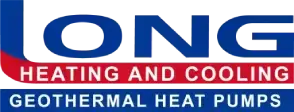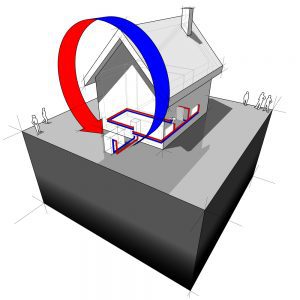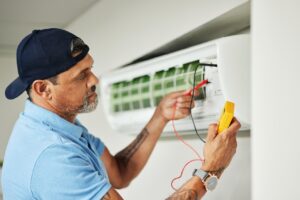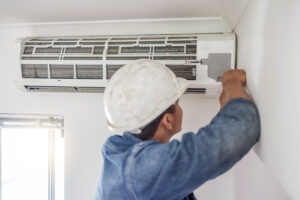What Is A Heat Pump?
A heat pump is an efficient method of cooling your home in summer and warming it in winter. Although heat pumps are new to many people, they’ve been around for over three decades and are found in schools, offices, motels, stores, and industrial plants as well as homes.
- Why Choose a New Heat Pump?: A new, energy-efficient heat pump is an excellent investment, providing years of worry-free heating and cooling and significant savings on your electric bill.
- How a Heat Pump Works?: A heat pump works by moving heat. In the summer, a heat pump operates like a standard, electronically driven air conditioner, collecting heat from the air in your home and expelling it outside. In winter, the process is reversed, and the heat pump collects heat from outdoor air to warm the air inside your home.
- How Does It Work in Winter?: “You’re saying that when it’s 38 degrees outside, my heat pump can still take enough heat from the air outside to warm my house?” Right. Even the coldest winter air contains some heat. However, heat pumps work best at temperatures above 35 degrees Fahrenheit. Below this temperature, an electrical resistance heater switches on, if required, to supplement heat brought in from outside.
- How Well Does It Work?: While many people find the winter operation of a heat pump the most difficult to understand, it is during the heating cycle that the heat pump produces the most significant savings. Unlike a furnace, which turns fossil fuel or electricity into heat, the heat pump collects heat that already exists in the outdoor air by means of its refrigeration cycle. Consequently, your heat pump will produce two to three times more heat than the energy it uses!
- How Much Money Can I Save?: Your savings will depend on the following factors:
- The efficiency of your old equipment
- The efficiency of your new heat pump
- Your climate
- Your electric rate
Cooling efficiency is rated by SEER (Seasonal Energy Efficiency Ratio). The higher the SEER, the higher the savings. If your home is over eight years old, your current air conditioner or heat pump probably has a SEER of 7.0. A new, higher-efficiency heat pump can be as much as 56% more efficient.
Heat pumps are rated for heating efficiency by HSPF (Heating Seasonal Performance Factor). Heat pumps are available with HSPF ratings up to 9.0. Since a heat pump combines the heat it produces with the heat from outside, the coefficient of performance (COP) of a heat pump is more than one. This means that you may pay for a dollar’s worth of electricity, but a heat pump can deliver as much as $3.45 worth of heating. That’s quite a bargain!
If you lived in a three-bedroom home in a mid-America city and had an older heat pump or air conditioner with a SEER of 7.0, replacing it with a high-efficiency heat pump with a SEER of 12.0 could save you $668 over three years.
Dual-Fuel Systems
If you’re looking for a new cooling system, but your old, non-electric furnace is still working, consider buying an add-on heat pump. With a dual-fuel system, the two systems share the heating load but never at the same time. Each system operates when it is the most cost-effective.
In a dual-fuel system, the heat pump will be your cooling system in the summer and your primary heat source in winter. But when the temperature drops below the heat pump’s set point, your furnace will take over until the outside temperature rises enough for the heat pump to operate more efficiently than your old furnace.
To learn more, contact Long Heating And Cooling today.








